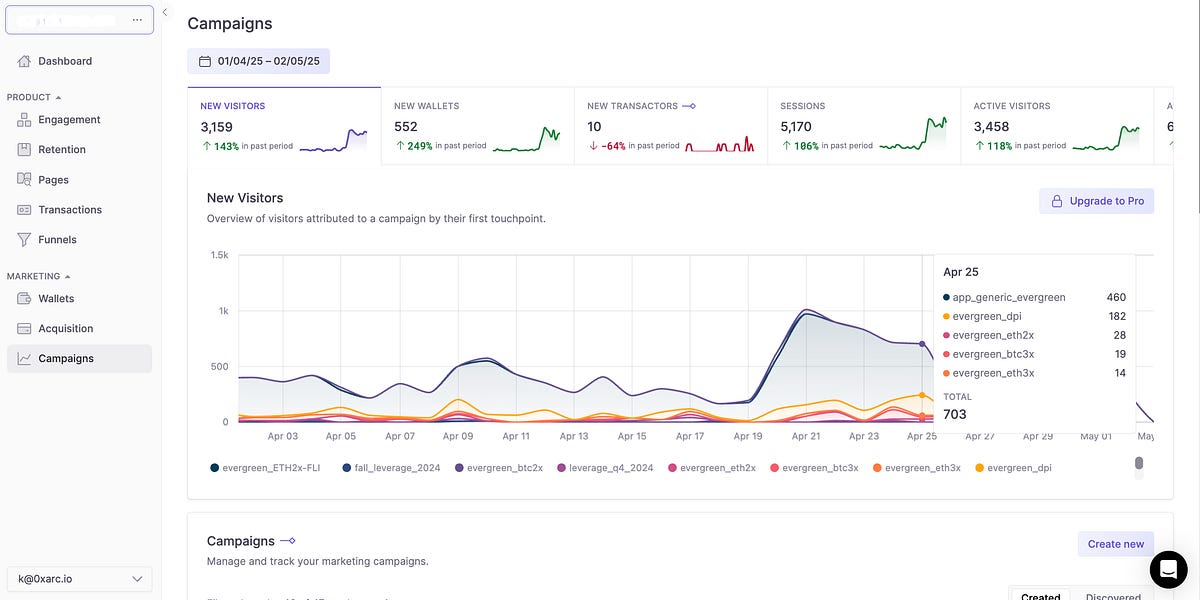Is that brother-in-law of yours who loves to brag about the amount of money he made on bitcoin one of the potential 300,000 Aussies yet to report their cryptocurrency to the ATO?
If so, he may be contributing to a staggering amount of potentially more than $1.5 billion in unreported crypto profits to the Australian Taxation Office.
What’s even more alarming: $1.5 billion is on the very conservative end of what that amount could actually be, according to a simple calculation using reliable data.
The calculation
Crypto tax software company Koinly shared some recent survey findings, that of the approximate 1.5 million Aussies dabbling in crypto, there are potentially 200,000-300,000 yet to report their crypto to the ATO.
Australian-based cryptocurrency exchange Swyftx revealed findings in its latest report that 72 per cent of those Australians investing in crypto had an average profit of $11,013 on their investment last year.
Even using the lower end of these stats, 72 per cent of 200,000 people is 144,000 people, the number of people we can assume made an average profit of $11,013.
Let’s take those 144,000 people and be conservative assuming they made no more than the average amount of $11,013, that still equates to over $1.5 billion in crypto profit not reported to the tax office.
Considering the fact that many Aussies have had greater returns than the average amount of $11,013, the total unreported to the ATO could be significantly higher.
Why is it important to report your crypto?
You’re probably wondering, why does it matter if I report my crypto or not?
The simple answer: The ATO already knows you own crypto.
A spokesperson for the tax office said despite crypto appearing “anonymous”, the ATO can track money trails back to taxpayers through data from banks, financial institutions and crypto asset online exchanges.
Koinly Australia head of tax Danny Talwar described the ATO data matching program as “comprehensive”, which find “anomalies” reported in tax returns compared to data received from various institutions.
If the ATO is after further information it can even make a request directly with the relevant cryptocurrency exchange.
Leigh Travers, CEO of cryptocurrency exchange Binance Australia, disclosed that Binance complies with all regulatory requests issued under “applicable legislation” from law enforcement and regulatory agencies.
While the ATO is understanding of those who make genuine mistakes allowing them to “amend” their tax return, those who deliberately don’t report or choose “not to act” after identifying errors or omissions may be subject to audit.
When is your crypto taxable?
The biggest myth is that crypto investors only have to pay tax when they convert their crypto into Aussie dollars.
The truth is, you’re liable to report all crypto you disposed of during the financial year, regardless of whether you converted it into cash or if you made a gain or a loss. These disposal events include swapping one crypto asset for another, using crypto to buy goods and services and even gifting crypto.
Mr Talwar added that it’s important for an individual to consider whether they have made a gain or loss on the disposal of their crypto asset, as their crypto is taxed at the applicable individual marginal income tax rate.
However, crypto is not just limited to capital gains tax – it can also be subject to ordinary income in some cases.
If you stake your crypto and gain interest or rewards as a result of this, this is ordinary income and you will need to add this amount to your taxable income.
Mr Talwar said crypto is taxed as ordinary income when received rather than on disposal, for example, staking income or any interest arising from yield-generating activities.
The takeaway
The reality is if you hold crypto in a cryptocurrency exchange, not only does the ATO already know about it, generally your accountant will too. It will appear on your pre-fill when they go to complete your tax return that you hold cryptocurrency and advise them to check with their client.
Mr Travers believes Australians have a “responsibility” to submit a true and accurate tax return, suggesting crypto traders who were unaware of their tax obligations should amend their tax returns to accurately reflect that.
There’s a wide range of crypto tax softwares out there that can help simplify this process for you, without giving up your entire weekend inputting data into a spreadsheet.
So next time your brother-in-law is going on about his 100x gains on his latest bitcoin investment, ask him if he reported it to ATO, tell him to download a crypto tax calculator and send him the link to this article.
Ciaran Lyons is an accountant and avid crypto investor, with a background as a national radio presenter. He regularly contributes to global cryptocurrency publications and was one of the five Australians on the latest SBS series Filthy Rich and Homeless.
Read More: news.google.com









 Bitcoin
Bitcoin  Ethereum
Ethereum  Tether
Tether  XRP
XRP  Solana
Solana  USDC
USDC  Dogecoin
Dogecoin  Cardano
Cardano  TRON
TRON  Lido Staked Ether
Lido Staked Ether  Wrapped Bitcoin
Wrapped Bitcoin  Sui
Sui  Chainlink
Chainlink  Avalanche
Avalanche  LEO Token
LEO Token  Stellar
Stellar  USDS
USDS  Wrapped stETH
Wrapped stETH  Shiba Inu
Shiba Inu  Toncoin
Toncoin  Hedera
Hedera  Bitcoin Cash
Bitcoin Cash  Hyperliquid
Hyperliquid  Litecoin
Litecoin  Polkadot
Polkadot  WETH
WETH  Binance Bridged USDT (BNB Smart Chain)
Binance Bridged USDT (BNB Smart Chain)  Monero
Monero  Bitget Token
Bitget Token  Ethena USDe
Ethena USDe  Coinbase Wrapped BTC
Coinbase Wrapped BTC  Pi Network
Pi Network  WhiteBIT Coin
WhiteBIT Coin  Wrapped eETH
Wrapped eETH  Pepe
Pepe  Dai
Dai  Bittensor
Bittensor  Aptos
Aptos  sUSDS
sUSDS  OKB
OKB  Uniswap
Uniswap  BlackRock USD Institutional Digital Liquidity Fund
BlackRock USD Institutional Digital Liquidity Fund  NEAR Protocol
NEAR Protocol  Ondo
Ondo  Aave
Aave  Gate
Gate  Cronos
Cronos  Internet Computer
Internet Computer